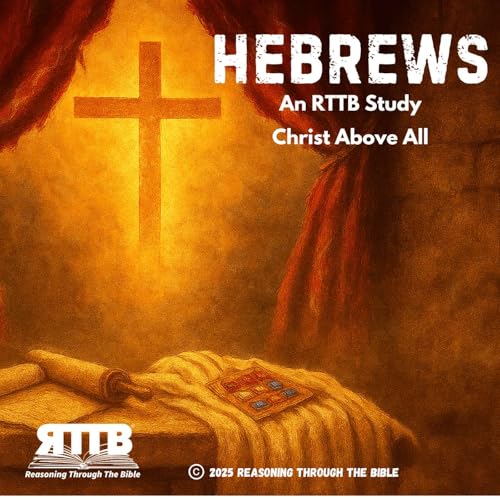
Reasoning Through the Bible
Échec de l'ajout au panier.
Échec de l'ajout à la liste d'envies.
Échec de la suppression de la liste d’envies.
Échec du suivi du balado
Ne plus suivre le balado a échoué
-
Narrateur(s):
-
Auteur(s):
-
Glenn Smith and Steve Allem
À propos de cet audio
Taking a cue from Paul, Reasoning Through the Bible is an expository style walk through the Scriptures that tells you what the Bible says. Reviewing both Old and New Testament books, as well as topical subjects, we methodically teach verse by verse, even phrase by phrase.
We have completed many books of the Bible and offer free lesson plans for teachers. If you want to browse our entire library by book or topic, see our website www.ReasoningThroughTheBible.com.
We primarily do expository teaching but also include a good bit of theology and apologetics. Just like Paul on Mars Hill, Christianity must address both the ancient truths and the questions of the people today. Join Glenn and Steve every Monday, Wednesday, and Friday as they reason with you through the Bible.
© 2026 Reasoning Through the Bible-
 Jan 23 202634 min
Jan 23 202634 minÉchec de l'ajout au panier.
Veuillez réessayer plus tardÉchec de l'ajout à la liste d'envies.
Veuillez réessayer plus tardÉchec de la suppression de la liste d’envies.
Veuillez réessayer plus tardÉchec du suivi du balado
Ne plus suivre le balado a échoué
-
 29 min
29 minÉchec de l'ajout au panier.
Veuillez réessayer plus tardÉchec de l'ajout à la liste d'envies.
Veuillez réessayer plus tardÉchec de la suppression de la liste d’envies.
Veuillez réessayer plus tardÉchec du suivi du balado
Ne plus suivre le balado a échoué
-
 27 min
27 minÉchec de l'ajout au panier.
Veuillez réessayer plus tardÉchec de l'ajout à la liste d'envies.
Veuillez réessayer plus tardÉchec de la suppression de la liste d’envies.
Veuillez réessayer plus tardÉchec du suivi du balado
Ne plus suivre le balado a échoué


